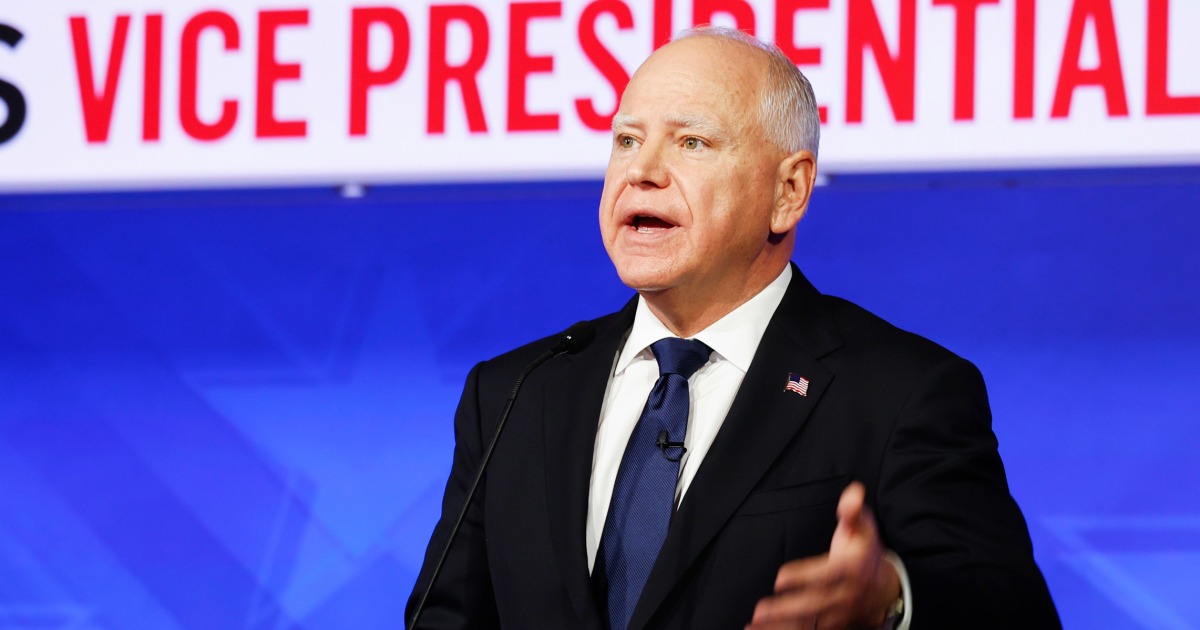Democratic vice presidential candidate Tim Walz conceded Tuesday night that he “misspoke” in the past when he claimed that he was in Hong Kong during the crackdown in Tiananmen Square in which China’s military attacked and killed pro-democracy demonstrators.
The Minnesota governor said that he had been in Hong Kong during the summer of the Tiananmen Square protests, but not in June 1989, when the crackdown took place in and around the square in Beijing, the Chinese capital.
The admission comes after news accounts contradicted Walz’s past contention that he was in Hong Kong as the deadly protests unfolded.
At the debate with Sen. JD Vance, the Republican vice presidential nominee, Walz said the misstatements were borne of rhetorical exuberance rather than a deliberate attempt to mislead Americans.
“I’ve not been perfect,” Walz said. “I’m a knucklehead at times.”
“Many times I will talk a lot,” he added. “I will get caught up in the rhetoric.”
One of Vice President Kamala Harris’ core arguments in her presidential campaign is that former President Donald Trump can’t be trusted to tell the truth. Walz’s false claim that he was in Hong Kong during an epochal event in world history creates a vulnerability that Republicans will surely look to exploit.
During the debate, Walz sought to refocus the question into an answer about his role as a young teacher who took groups of students to China to study a different culture.
Walz first went to China after graduating from college in 1989, stopping first in what was then the British colony of Hong Kong. He spent a year teaching English and American history and culture at a high school in the southern Chinese city of Foshan through Harvard’s WorldTeach program.
Walz has said in the past that he was in Hong Kong “on June 4 when Tiananmen happened.” He said he was all the more motivated to go to China after the violent episode, which is estimated to have resulted in thousands of deaths and severely strained Beijing’s international relations.
The timing of his arrival in Hong Kong was first questioned on Monday by Minnesota Public Radio, which cited an August 1989 article from a Nebraska newspaper saying Walz was leaving for China that month.
Asked about the discrepancy on Tuesday, the Harris-Walz campaign did not dispute that Walz misspoke but did not explain why. The campaign said that the number of trips Walz has made to China is likely closer to 15, rather than the 30 that he has claimed in the past.
According to a source familiar with Walz’s comments, the point he was trying to make is that some people in his teaching program discussed dropping out after the Tiananmen Square crackdown, “but he continued on with the program because he believed it was important for the Chinese people to learn about American democracy and American history.”
“This is about trying to understand the world,” Walz said Tuesday.

Leave a Reply